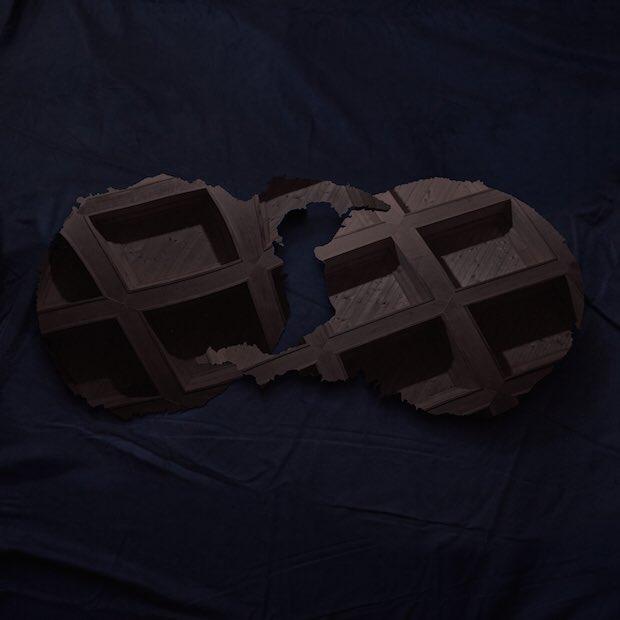BY PARKER KLYN
It’s a music cliché as old as rock n’ roll: love changing the foundation of a band. From Yoko Ono’s alleged infiltration of the Beatles to Stevie Nicks and Lindsey Buckingham’s fiery burned-out chemistry within Fleetwood Mac, romance between musicians can be a catalyst for strange, heartbroken and even incendiary lyrics and themes.
David Longstreth of the art-pop veterans Dirty Projectors knows this well. His well-publicized breakup with longtime girlfriend and bandmate Amber Coffman has dominated independent music headlines over the past half-year, and with both releasing albums in 2017, they seem ready to turn their experiences into art.
When Longstreth released his first post-breakup single last October in “Keep Your Name,” it came across as bitter and self-indulgent. But in the context of the Dirty Projectors’ new self-titled record, it’s the clear exposition to a cohesive arc: the story of Longstreth and Coffman’s separation. And with that, he’s created a defining breakup album in a post-Lemonade world, something that is no small feat.
“Keep Your Name” is a heart-wrenching ballad. Longstreth’s vocals are pitched down from his typical thin yelp, adding depth, sluggishness and focus to an artist known for his willingness to jump around to different styles without giving time for one to stick.
“I don’t know why you abandoned me,” are the first words that are uttered on the album, followed by the crushing chorus: “We’ll keep separate and you’ll keep your name.”
And suddenly, the same old Longstreth is back, as an absurd and spiteful rap verse is inserted into the bridge.
“Your heart is saying ‘clothing line’/ My body said Naomi Klein (No Logo),” Longstreth spits, referencing Klein’s classic criticisms of corporate capitalism – apparently in opposition to Coffman’s desires for the Dirty Projectors.
The melodrama continues on “Death Spiral,” with Longstreth lamenting the relationship moving out of his control. While the beat is engaging, Lonsgstreth’s voice, with its near-comical exclamations of “death!”, can’t be taken seriously.
Let me be clear about this: Longstreth has a truly awful singing voice. In the past, with golden-pipes band members like Coffman, he was able to accentuate his emotions through contrast. Here, the moments where it’s tolerable occur when Longstreth is able to showcase his melodic pop instincts, like on the sprawling early Dirty Projectors throwback “Up In Hudson.”
This track is a reminiscence of turning points between Longstreth and Coffman, and its instrumental of lush saxophones and brass is warm and inviting. “First time I ever kissed your mouth, we both felt time stop,” is a simple and believable line, but it’s a welcome reprieve from the resentment of the rest of the record. Still, the song goes off the deep end towards the finish line: “Love will burn out/ Love will just fade away/ Love’s gonna rot/ Love will just dissipate.”
This is heavy stuff, the kind of heartbreak that could only come from something that actually happened. But so much of the record just feels oppressively sour, like the synth bloops on “Work Together” or the terrifying industrial breakdown on “Ascent Through Clouds”. Unlike, say, Bon Iver’s recent exploration of electronic music, Longstreth seems to want to remove as much of the warmth as possible; unfortunately, if the album’s music isn’t engaging, the lyrics aren’t going to matter one bit.
The moments when Longstreth keeps things musically organic are the best moments, and they happen to have the most lyrical impact as well. “Little Bubble” is a beautiful contemporary R&B song, with pentatonic piano and classy strings backing its despondent but gratifying chorus: “We had our own little bubble for a while.”
From start to finish, Longstreth has given us an almost uncomfortably intimate look at his mental state post-breakup. The stories and locations (cruising on the Taconic Parkway while listening to Kanye West, walking through Manhattan while observing gentrification) are so vivid and real that it feels like the listener has stumbled upon something they shouldn’t have.
The one moment that makes it seem like Longstreth might recover is the penultimate “Cool Your Heart.” As guest vocalist Dawn Richard implores that she wants to “be where you are, you’re the right one,” Longstreth reminds himself over and over to relax; it’s over. That leads to the album’s finale, where he lets the projection of how he sees himself and Coffman fade away, revealing the true nature of the pair. They’re just two people who fell in and out of love, and Longstreth finally seems to realize that that’s happened to everyone.
Two weeks after Longstreth first released “Keep Your Name,” Coffman announced a solo project and an accompanying lead single, called “All To Myself.” Her angelic voice seems conflicted about the breakup; she sounds resolute in her decision while missing all the things that makes relationships great. And ever so faintly, on the final chorus, a male voice creeps in–one that sounds suspiciously like Longstreth’s. I don’t know if David Longstreth and Amber Coffman decided to collaborate one last time, but if they did, I can’t think of a more appropriate way to express that feeling of separation after years of love; even if they’re not at the forefront of your mind, they linger, while the memories and what-ifs brush against your consciousness until you find someone new.







